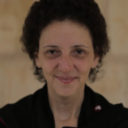A comprehensive and well-written report, Caroline Hartnell’s just-released Philanthropy in the Arab Region: A working paper gave me a feeling of déjà vu. The report featured the same deservedly respected experts that are featured in every report on Arab philanthropy, and they were saying things I’d heard for years at conferences, in articles, and, I felt sure, in other ‘state of the field’ reports.
I scoured my files and found document after document, all covering similar themes: acknowledging traditional forms of giving, bemoaning the lack of a legal/regulatory framework, complaining about insufficient professionalization in the field, lamenting the weakness of the civil society sector, and explaining the difficulty of getting Arabs to give to secular institutions with objectives that are broader than poverty alleviation. Then, in conclusion, there is a sense of optimism that with more effort and time and more international support, things will get better.
I traced the origin of many of these themes back to the then-groundbreaking 2008 tome From Charity to Social Change: Trends in Arab Philanthropy by Barbara Ibrahim and Dina Sherif, the original mavericks behind the John T Gerhart Center for Civic Engagement in the Arab World at the American University of Cairo.
Is it possible that so little has changed in ten years?
Sadly, it is possible. After all these years, the report reveals the persistence of a predominant and unexamined assumption in the Arab philanthropic sector that progress can be measured by the extent to which it looks more and more like western philanthropy. The concept of philanthropy is frequently conflated with money, which impoverishes local communities by accounting for their lack of money rather than valuing the abundance of their non-monetary resources. It conflates philanthropy with the organizational structure that the west calls a foundation, as in the statement: ‘In Tunisia, where there are no local foundations, almost all philanthropic money currently comes from foreign sources.’ The local sharing, giving and multiplicity of forms of social solidarity that have held old cultures together for generations are not given the attention they deserve.
Much is said about the need to build philanthropic infrastructure like in the west (eg tax deductibility), but these conclusions are drawn from comparisons that lack historic and economic context. The US philanthropic sector in the US, and especially the structure of the foundation, was built with the spoils of US colonialism, militarism, and unsustainable consumerism. The generation that was born poor and died rich because of stock market growth and exploitation of workers created legal/financial structures that let them expand their influence under the guise of charity. Which part of this history can – and should – the Arab world try to emulate?
In this rush to westernize, there is also insufficient attention to how Arab (and other) civil society actors become more vulnerable when they link their aspirations to the west. They become vulnerable to pressure to work in English and to explain their goals in ways that will make western donors feel comfortable, and to political pressures embedded in anti-terrorism and other US foreign policy agendas. Perhaps most importantly, a non-critical approach may see the west as a source of funds, but fail to recognize the west (or global north) as a source of many of the economic, political and military interventions that cause the problems that Arab philanthropy seeks to alleviate.
From this point of view, the requirement that civil society organize itself into NGOs is a kind of cultural imperialism. Arab philanthropy, one would hope, would be more open to and supportive of communities’ own forms of organization and methods for pursuing their own agendas. But this would be a mistake. This would assume that Arab philanthropy is automatically supportive of Arab communities, that it is more progressive because it serves its own people.
But with the exception of comments by community philanthropist and activist Marwa El-Daly, there is virtually no discussion in the field (or in this report) about the need for fundamental changes in power structures and democratization of access to resources. The term ‘accountability’ appears only four times in the 58-page report, and the concept is treated superficially rather than as a fundamental requirement of good philanthropy.
As a result, Philanthropy in the Arab World: A working paper, gives the impression that increasing giving of money is an objective in and of itself. That’s why there is such interest in corporate giving without a corresponding concern about the importance of civil society’s independence from the private and public sectors. The challenge of government’s relationship with civil society isn’t a technical one, it’s a fundamental struggle about democratic vs oligarchic control.
My position should be clear by now: “real” philanthropy is social justice philanthropy. Unfortunately, I couldn’t tell in Hartnell’s report which agenda Arab philanthropy wants to support. Shouldn’t we worry less about how much money we have or don’t have and more about what we’re trying to accomplish in the world? Fortunately, the report is a ‘working paper’, so there’s still time to address these deeper issues.
Nora Lester Murad, PhD, is an activist and writer. She co-founded Dalia Association, Palestine’s community foundation (www.dalia.ps), in order to promote self-determination in development. She co-founded Aid Watch Palestine (www.aidwatch.ps) to mobilize Palestinians to hold aid actors accountable, especially in the Gaza Strip. She writes about international aid, community philanthropy and life under military occupation at http://www.noralestermurad.com and has published in the The Guardian, Aljazeera, Open Democracy, Mondoweiss, Huffington Post, This Week in Palestine, and as a Policy Member with Al-Shabaka, the Palestinian Policy Network.
This article originally appeared on Philanthropy Social Justice and Peace on 18 May 2018. The original article can be found here.






Comments (0)